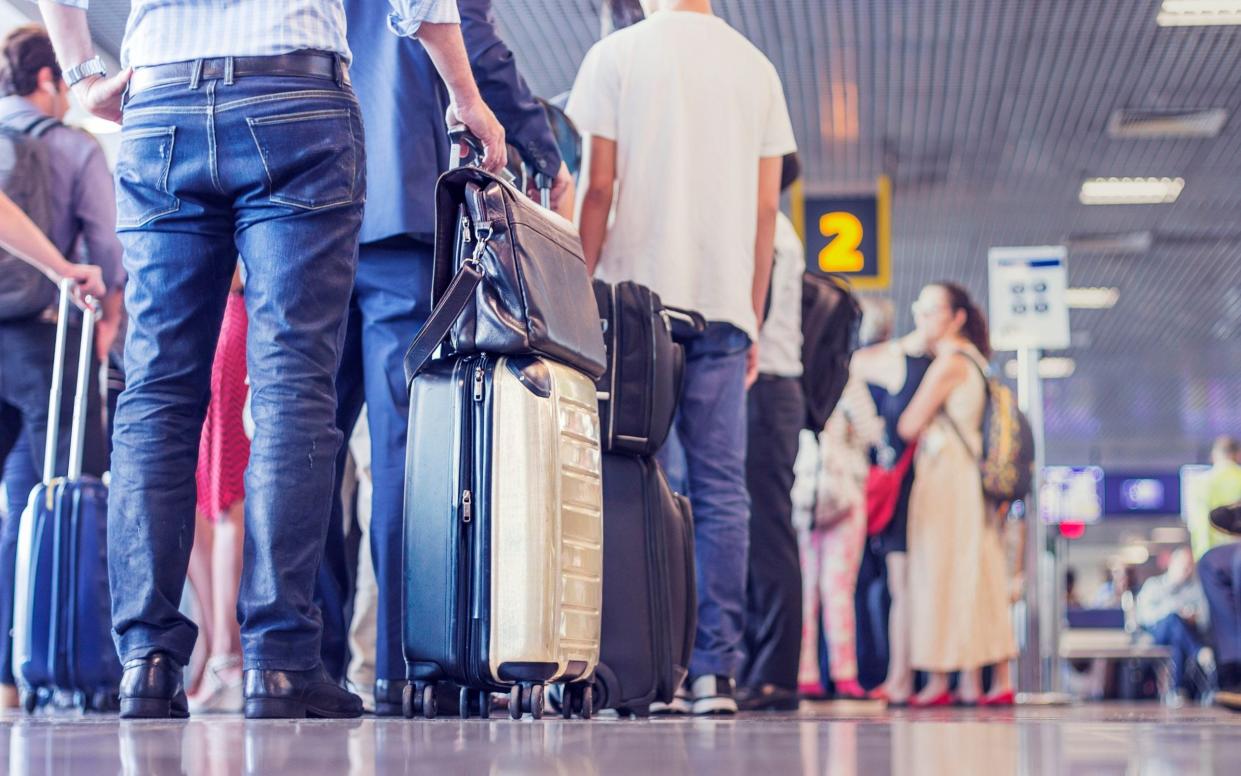Psychologists explain why we behave so strangely while travelling

We all have our holiday habits. Do you arrive at the airport three hours in advance or with just seconds to spare? Are you one of those who breezes sedately onto your flight for that first holiday Bloody Mary or stresses about everything before you even zip your suitcase shut?
Why do we do the things we do at airports and once onboard the plane? We've asked some travel psychologists and therapists to help explain the rationale behind our behaviour. How many categories do you fit into?
The impatient souls who queue up to board the flight, long before it is time to queue up
“People like this are catastrophising,” says clinical psychologist Dr Jonathan Pointer, “which is where they imagine the worst possible outcome. Some people are more prone to this style of thinking than others. This often drives people’s anxieties, which leads them to engage in safety-seeking behaviours, such as lining up to board much earlier than necessary. It’s a way of protecting themselves from the feared catastrophe, such as not finding the best place for their luggage, or even that unless they queue now, then for some reason unbeknown to them, they won’t be able to board the plane.”
The ‘tutters’ who are very unhappy to be sat next to a young child
“The thought of sitting near a screaming baby doesn’t fill even the kindest person with joy,” admits Dr Sarita Robinson, deputy head of psychology and computer science at the University of Central Lancashire. “But tutting can make the situation worse. If the parents are aware of the hostile environment around them, they’ll be more anxious and when children feel that their parents are tense, they’ll start to feel upset too.”
“People are intolerant of children because as a child that’s what they experienced,” adds psychotherapist Noel McDermott. “Their internal parent is harsh, and they act it out.”
The selfish types who think it’s OK to play audio from phone speakers
“They may just be marking social territory,” says Dr Aria Campbell-Danesh. “Research indicates that our musical preferences are linked to our thinking style and personality.
“When we play music in public settings, we own the space and create a social environment that connects us to like-minded individuals. But that may be uncomfortable for outsiders.”
For others, though, what many see as antisocial behaviour creates a kind of high, says Jonathan Pointer. “There’s the idea that powerful people break rules and ‘if I break the rules, I am powerful’. Deliberately playing music at a loud level is a way that some people who, consciously or unconsciously, do not feel ‘enough’ get to feel that they have the same power and status in the world as everyone else, and thus feel normal and safe.”
The hand-luggage only traveller with three bags, airport shopping and a hat box
“There are a lot of motivations for this, from entitlement to stupidity and genuinely not getting the rules,” says Noel McDermott. “It’s often linked to survival instincts, particularly overpacking. We tend to underplay just how unnatural our lives are and how much flying is an activity that sends us into 'fight or flight' mode pretty easily. We think because we can think that we are not also at the same time animals, with aspects of ourselves that run solely on stimulus response. Trying to take as much with us in the cabin is one of those stimulus-response issues… the stuff comforts us.”
The frequent flyer with a gold card fastened on their bag
When it comes to gold-tier bag tags, Campbell-Danesh thinks they convey symbolic value of elite status… in the eyes of the owner, at least. “Individuals whose internal self-esteem is strongly linked to their external image may be drawn to signalling to others that they, and their bags, are very important.”
It’s linked to pecking order in other ways, confirms Noel McDermott. “A huge amount of conflict is managed through signs and symbols which reduce the possibility of actual combat. It’s akin to knights of yore showing their heraldry for all to see, so hopefully others back down from a fight.”
The people who leap to their feet as soon as the plane lands
It’s because we conform with others’ behaviours, jumping on a bandwagon when we see what other people are doing, says Dr Meg Arroll. “Basically, we act a bit like lemmings because we are socially driven creatures and at one point in our evolution this would have been vital to our survival.” And of course, after four hours with precious little legroom we just want to stretch.


